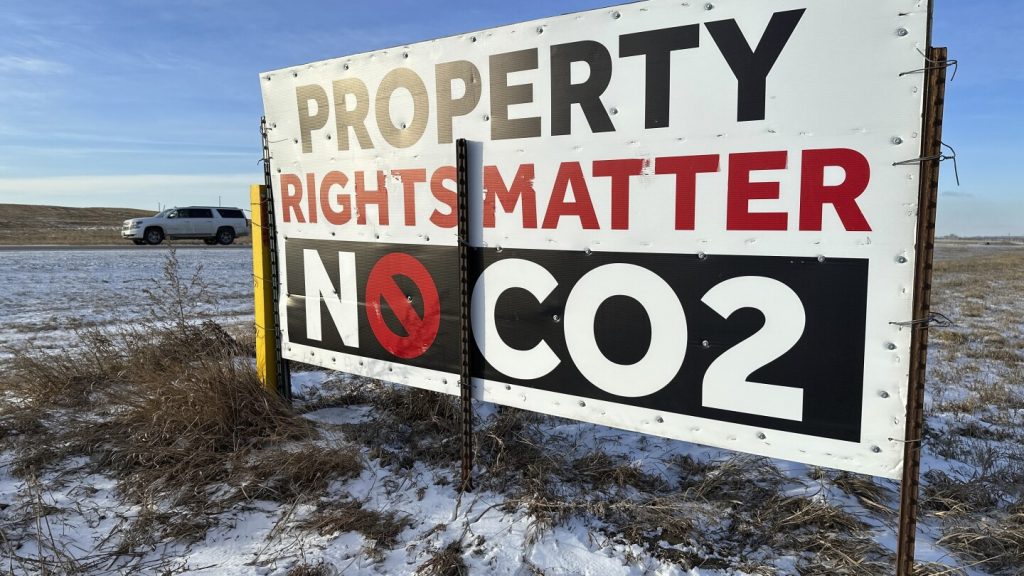Iowa regulators have approved a controversial carbon dioxide pipeline project that will transport emissions for storage underground. This project by Summit Carbon Solutions aims to carry CO2 emissions from ethanol plants in five Midwest states to be stored in central North Dakota. The project, estimated at $5.5 billion and spanning 2,500 miles, is seen as a way for farmers and the ethanol industry to qualify for federal tax breaks and expand the market for cleaner-burning aviation fuel. Iowa Renewable Fuels Association Executive Director Monte Shaw believes this could significantly boost Iowa’s economy.
Despite the approval, there are concerns from landowners and opponents of the project. Many fear that their land will be taken for the pipeline and worry about potential risks associated with a pipeline rupture. A coalition opposing Summit’s project has vowed to fight against the Iowa regulator’s decision. Landowner attorney Brian Jorde acknowledges that the approval was expected but mentions that Summit still has a lengthy process ahead, including seeking approvals in other states such as South Dakota.
Before construction can begin in Iowa, Summit must meet several requirements, including obtaining approvals from neighboring states like North Dakota and South Dakota, as well as insurance coverage for potential damages. The company also needs approval from Minnesota and Nebraska before building lines to ethanol plants in those states. The decision in Iowa comes after setbacks in other states, with North Dakota initially denying a permit but later agreeing to reconsider. South Dakota regulators denied Summit’s application, while Nebraska has also faced challenges with permit approvals.
The Iowa regulators’ decision also grants Summit the right of eminent domain over certain land parcels, but only after the permit is issued. The extent of Summit’s eminent domain powers is not yet clear. Supporters of carbon capture projects like Summit’s see them as crucial in combating climate change, especially with new federal tax incentives and funding from Congress. However, opponents question the technology’s effectiveness and the need for significant investments over cheaper renewable energy sources.
North Dakota Governor Doug Burgum supports the pipeline project and has set a goal for the state to become carbon neutral by 2030. Although he is not seeking reelection, he remains committed to this environmental initiative. The approval of the carbon dioxide pipeline in Iowa represents a significant milestone for Summit Carbon Solutions’ project, despite the challenges and opposition it has faced. The outcome of this project will have long-lasting implications for the Midwest region and its efforts towards cleaner energy solutions.


